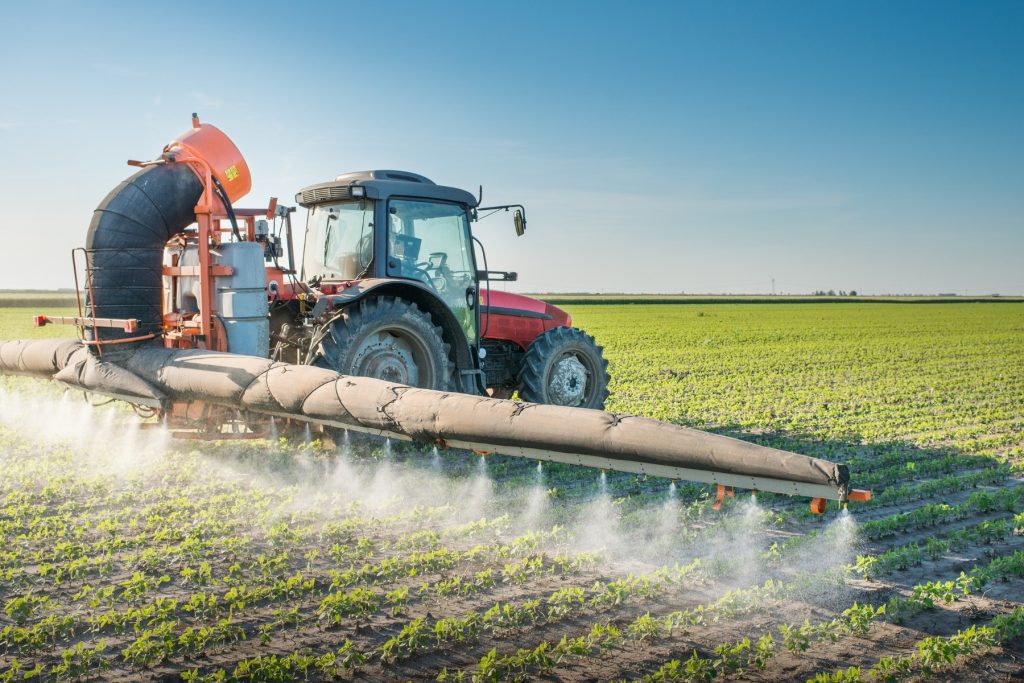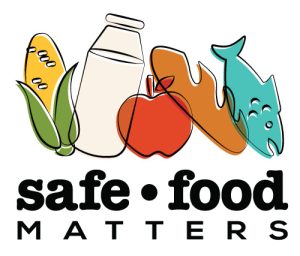 Glyphosate is the most widely used pesticide in the world, by far. It is sprayed on lawns, growing crops, fields, and roadsides, and also on Canadian forests. It works by killing good bacteria (which allows pathogens to take over), and also by binding minerals so they can’t do their job. Glyphosate is now found everywhere: in our urine, mother’s breast milk and placenta, and in all areas of the environment, including drinking water and in forests far away from agricultural spray zones.
Glyphosate is the most widely used pesticide in the world, by far. It is sprayed on lawns, growing crops, fields, and roadsides, and also on Canadian forests. It works by killing good bacteria (which allows pathogens to take over), and also by binding minerals so they can’t do their job. Glyphosate is now found everywhere: in our urine, mother’s breast milk and placenta, and in all areas of the environment, including drinking water and in forests far away from agricultural spray zones.
The problem with this is glyphosate is harmful. It is toxic to freshwater and land plants, freshwater algae and marine/estuarine invertebrates and marine fish. [It also probably causes cancer in humans, according to the specialized International Agency for Research on Cancer. The cancer risk is underlined by the 2020 ATSDR Toxicological Profile on glyphosate of the US Department of Health, which found positive associations for lymphohematopoietic cancers.]
A reassessment of glyphosate is needed to get it off of our shelves, out of our environment and out of our food.
SAFE FOOD MATTER'S WORK: SUMMARY
![]() Safe Food Matters’ work targets the regulatory process surrounding the approval of glyphosate. We objected to the 15+ year Canadian re-registration of glyphosate, went to Court to get Health Canada to properly respond to our objections, and won! Health Canada’s Pest Management Regulatory Agency (PMRA) now has to decide whether to appoint a panel to review glyphosate.
Safe Food Matters’ work targets the regulatory process surrounding the approval of glyphosate. We objected to the 15+ year Canadian re-registration of glyphosate, went to Court to get Health Canada to properly respond to our objections, and won! Health Canada’s Pest Management Regulatory Agency (PMRA) now has to decide whether to appoint a panel to review glyphosate.
We also campaigned against a three and four fold increase of the Maximum Residue Limits of glyphosate allowed in certain foods. The increase was put on hold, and PMRA embarked on a “Transformation Agenda” to transform certain aspects of its approach to pesticides.
Glyphosate Court Case
SFM filed a notice of objection (NoO) and asked for a review panel, PMRA dismissed the NoO, and SFM sued and ultimately prevailed in the Federal Court of Appeal. PMRA must look at the NoO again and respond in a way that shows it is working to protect Canadians and the environment.
Because SFM raised scientific issues in its NoO that PMRA did not examine when it re-registered Glyphosate, SFM expects an independent scientific review panel will be established. This would be the first such panel in Canada, and it will be a public proceeding at which the public can make representations.
Below is a detailed summary of the history of the file. Other summaries and announcements can be found here:
– Early summary: Summary of Health Canada Court Case: Glyphosate (2019-07-30)
HISTORY OF FILE
Since Glyphosate was registered for use prior to 1995, a review of its registration was to be initiated by April 1, 2005 (s. 16 Pest Control Products Act). The reviewing agency was PMRA.
The preliminary review took 10 years: it finished in 2015. It went final in 2017. By this time Glyphosate had been on the market for almost 40 years.
PMRA decided to allow Glyphosate products to stay registered in Canada until the next review in fifteen plus years. The Proposed Re-evaluation Decision (PRVD 2015-01), and the Re-evaluation Decision (RVD2017-01) both held that the PMRA’s evaluation of Glyphosate products indicated that they do not present risks of concern to human health or the environment when used according to label directions.
Safe Food Matters and 7 other objectors were given 60 days to file Notices of Objection (NoO) to the registration decision, and they did. At the end of June, 2017 they filed their NoOs and asked the Minister of Health to establish an independent panel of persons to review the reregistration decision.
The NoOs presented scientific rationale and evidence to support their objections that the PRVD2015-01 evaluation of the health and environmental risks of Glyphosate was not valid.
An early summary of SFM’s Notice of Objection is here: Objecting to Glyphosate Desiccation ((2017-10-30). The actual NoO is here: [Find link]
PMRA took 3,883 hours to review the NoOs, and took a year and a half to provide a response. The objectors wrote to PMRA in December, 2018. On January 11, 2019 PMRA finally responded. It rejected the request for a review panel.
In its response, PMRA presented a form letter to each objector, indicating that the objections did not “raise scientifically founded doubt about the validity of [PMRA’s] evaluation of the health and environmental risks of Glyphosate.” It then attached an appendix to each letter in which PMRA countered or ignored the science and arguments raised. The response to SFM’s objection is here: [Insert]. 20190117 PMRA Response to Notice of Objection
PMRA has not provided information to the objectors concerning the qualifications it required for the reviewing scientists.
Safe Food Matters and its president Mary Lou McDonald in February 2019 filed for the Federal Court to review PMRAs rejection of its NoO on the basis that the rejection was unreasonable. Here is the media release on filing: Going to Court! (2019-02-12)
They claim PMRA made many mistakes:
It did not examine preharvest use (desiccation) of glyphosate and the risk of increased levels of Glyphosate in food that this use causes;
It ignored evidence of markedly increased consumption of desiccated foods (like chickpeas);
It used outdated dietary exposure models and old information on diet from the 1990s and from the US;
It ignored the fact that labels on spray containers can’t work for all crops, including indeterminate crops that are always growing new seeds/ beans and therefore always attracting glyphosate;
It ignored the evidence that the labels aren’t followed anyways (as shown by the PMRA’s own statistics); and
It reduced the safety factor imposed by law for spraying Glyphosate around children. without the required scientific rationale.
On January 30, 2020 the case was heard. See: Federal Court Follow-Up (202-01-31). On February 13, 2020 the Federal Court Judge held, in written reasons, that the NoO did not show a scientifically founded doubt about the validity of the evaluations, and that the case be dismissed. See: Federal Court Releases Its Decision (2020-02-14)
On March 13, 2020, Safe Food Matters filed for appeal of the decision of the Federal Court Judge. It argued that the Judge erred in her approach of her review of the PMRAs decision to reject the NoO and that PMRA’s rejection decision was unreasonable. See: Safe Food Matters Appeals Decision (2020-03-21)
On October 7, 2020, Canadian environmental groups Friends of the Earth, Environmental Defence and David Suzuki Foundation, represented by Ecojustice, were granted status to intervene in the case. The parties present to the court at the end of December, 2021. See: Glyphosate in Court December 9, 2021 (In French: Le glyphosate en cour 9 décembre 2021).
A backgrounder to the appeal written in English and French in October 2021 can be found here: Backgrounder to Appeal/ /Document d’information sur l’appel
SFM was not impressed with the conduct of PMRA during the court case. See this article pointing out SFM’s views that PMRA did not follow the letter or intent of the law, and that its behaviour was problematic: Safe Food Matters, But Not to Health Canada? (2021-10-21) (And in French: La salubrité des aliments est importante, mais pas pour Santé Canada? )
On February 2, 2022, the Federal Court of Appeal held that the rejection decision of PMRA was unreasonable, and that PMRA must revisit the NoO, and in so doing take into account the “Guidance” offered by the Court. This “Guidance” should prove useful to other regulators when responding to the public, which will prove useful in other cases.
– See Safe Food Matters Wins Glyphosate Court Case! For the personal story behind the case, see: A Small Group of Thoughtful, Committed Citizens Can Change the Law.
The Guidance of the Court (para 65) said that when PMRA decides on the NOO of SFM for the second time, it should explain how it has regard to various factors, including:
Consideration of the primary objective of the Act (which is to prevent unacceptable risks to individuals and the environment from the use of pest control products)
What the “scientifically based approach” of PMRA (when it re-evaluates a pest control product) actually means;
The role and tasks of PMRA when it reviews a notice of objection
The role and purpose of a review panel when it receives a notice of objection (referred to it by PMRA) and how this contrasts with the role and purpose of the PMRA
When an objector tries to show a “scientifically founded doubt” about the validity of the evaluation, what is the threshold for that standard
The criteria that would determine whether the advice of an expert review panel would assist in addressing the subject matter of the NoO
Correspondence from PMRA indicates:
“In light of the guidance provided in the Federal Court of Appeal’s judgment, the PMRA is currently working on integrating the court’s guidance into the PMRA’s approach to future decisions in respect of Notices of Objection”.
PMRA indicated it would advise on this process by early summer, 2022, and then delayed that to early autumn, 2022.
Safe Food Matters’ expectation is that, upon reviewing the NoO for the second time, PMRA will decide to establish a review panel of independent scientists to consider the health risk assessment PMRA conducted in PRVD2015-01. The process will be a public one, and members of the public can make relevant submissions to the panel. This will be the first such panel established under the PCPA.
REGULATORY / OTHER FILINGS
2019 02 11 – Notice of application
2019 04 18 – Affidavit of Mary Lou McDonald
2019 05 10 – Affidavit of Ephry Mudryk
2019 06 27 – Affidavit of Isabelle Pilot
2019 09 05 – Applicants Memorandum
2019 10 07 – Respondents’ memorandum
2020 02 13 – Judgment
2019 02 11 – Notice of application
2020 11 04 – Appeal Book
2020 12 04 – Appellant Memorandum of Fact and Law
2020 12 15 – Intervenors Memorandum of Fact and Law
2021 02 12 – Respondents’ Memorandum of Fact and Law
2022 02 02 – Judgment Federal Court of Appeal
2017 06 27 – Notice of Objection to PMRA re RVD2017-01
2019 01 17 – PMRA Response to Notice of Objection
2021 05 15 – Submissions to New Brunswick Standing Committee on Problems with PMRA Risk Assessment of GLY
2022 04 13 – Comments to PMRA on GLY increases in PMRL 2021-01
2022 07 07 – Comments to PMRA on Targeted Review of PCPA
ing, 2021 PMRA proposed to increase the levels of Glyphosate in food. Safe Food Matters and other groups started a campaign to enlist public comments, and the response was overwhelmingly against the proposal. As a result, the Government announced a “pause” on the increases, and embarked on a “Transformation Agenda” for PMRA.
See:
- Health Canada Wants to Increase Glyphosate in Food (2021-07-10)
- How to Take Action on Glyphosate (2021-07-17)
- Update: Comment ‘til September 3 on Glyphosate MRL Increases (2021-07-21)
- UPDATE 2: GOVERNMENT PAUSES MRL INCREASES, AND WILL REVIEW PARTS OF THE ACT; BUT MORE IS NEEDED (2021-08-08)
- Pesticide Reform: Letter to Ministers (2021-08-15)
The confidential test data for the proposal was provided to Safe Food Matters only after the public comment period had closed, and SFM discovered significant shortcomings in the data. SFM provided its comments explaining these concerns to PMRA in April, 2022 (pursuant to an agreed upon extension). PMRA must publish its response to the comments if it ever increases the MRLs under the proposal. See: Glyphosate MRL Proposal Not Based on Sound Science. (And in French: LMR de glyphosate non fondées scientifiquement)
The problems include: overestimation of maximum residue limits (MRLs); different exposure scenarios than in Canada; outdated, irrelevant dietary consumption data; and ignoring data that showed residues increase, instead of decrease (as was assumed), following the spray date.
Safe Food Matters also provided comments to the consultation on the “Targeted Review” of the PCPA launched in March, 2022. The comments, and a summary of them, can be found here: Comments on Targeted Review of PCPA. Smaller posts about the three objectives of the review are here:
In May, 2021, SFM provided a submission to the New Brunswick Standing Committee on Climate Change and Environmental Stewardship that points out the flaws with the assessment of glyphosate conducted by PMRA. See this article and the submission embedded in it: Why is Glyphosate Still Allowed In Canada?
Presentation
What You Can Do
SAFE FOOD RECOMMENDS:
 * To avoid dietary exposure, eat organic foods. They are not sprayed with pesticides.
* To avoid dietary exposure, eat organic foods. They are not sprayed with pesticides.
* In particular, avoid eating seeds, beans, kernels – any seed of a crop – that are not organic. Because glyphosate is systemic, it moves through the system of the plant right to the seed.
SEE OUR EARLIER POSTS:
- Glyphosate in our Food (2017-02-25)
- GLYPHOSATE IN OUR FOOD II: HIGHEST LEVELS IN LEGUMES & CEREALS BECAUSE OF FARMING “DRY-DOWN” (2017-09-14)
* Because glyphosate chelates minerals, replace key minerals in your body. These include magnesium, sulfur and B12. See literature on this subject, including:
* Because glyphosate kills good bacteria in your stomach, replace good bacteria in your diet.


